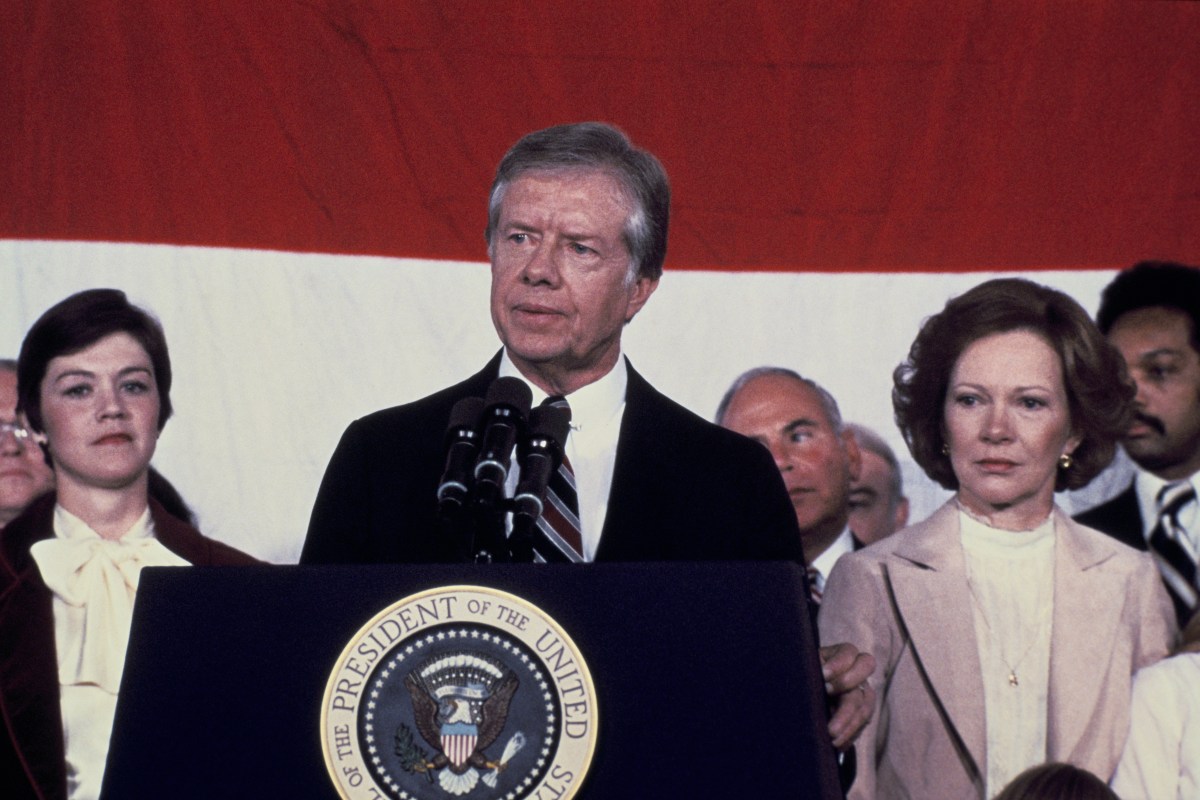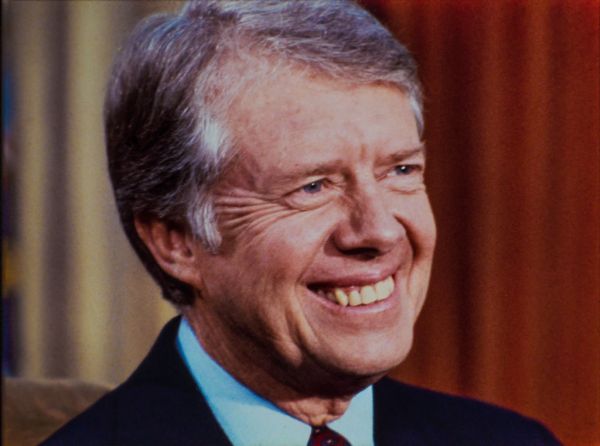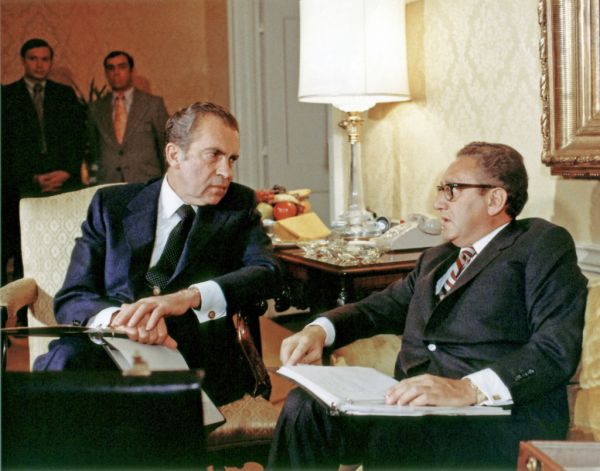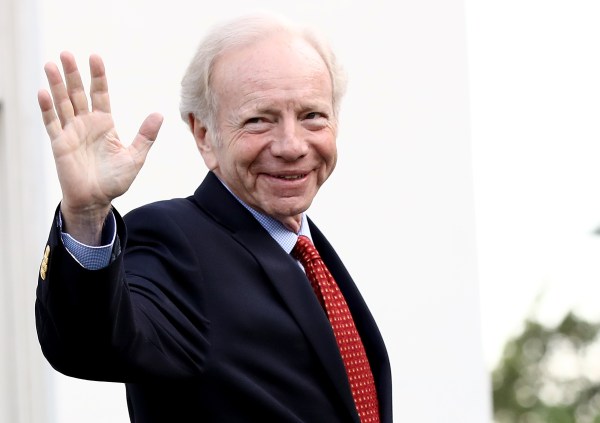Happy Monday! Magnus Carlsen, a five-time world chess champion, withdrew from a major competition on Friday after he refused to change out of jeans and into something nicer.
To be honest, even jeans seem a little too much for the week of oblivion between Christmas and the New Year. Soft pants only!
Quick Hits: Today’s Top Stories
- Former President Jimmy Carter died on Sunday at the age of 100, according to a statement by his son, Chip. Carter, a peanut farmer who became governor of Georgia in 1971, was elected president in 1976. Carter’s one term, however, was marked by an unsuccessful attempt to combat inflation and the Iran hostage crisis, and he was defeated by Ronald Reagan in the election of 1980. Carter had an unusually active post-presidential career, campaigning internationally for human rights and economic development and building homes with Habitat for Humanity. Carter’s wife, Rosalynn, whom he married in 1946, passed away in November 2023.
- More than 175 people died in a plane crash in Muan, South Korea, on Sunday, marking the country’s worst air disaster since 1997. The Jeju Air flight, a Boeing 737-800 arriving from Bangkok, reportedly crashed into the runway at high speed with no landing gear deployed. South Korean officials are investigating possible causes of the crash, including inclement weather and a possible bird strike in an engine.
- Russian President Vladimir Putin on Saturday apologized to Azerbaijan for the plane crash that killed 38 people on Wednesday, claiming that air defense systems in the Russian region of Chechnya were repelling a Ukrainian drone attack at the time of the incident but stopping short of explicitly saying that Russian missiles had struck the plane. U.S. officials have said such missiles likely caused the crash of the aircraft, which was flying from the Azerbaijani capital of Baku to Chechnya. Azerbaijani President Ilham Aliyez, in a state television interview on Sunday, accused Russia of unintentionally shooting the plane. “We can say with complete clarity that the plane was shot down by Russia,” Aliyez said. “Unfortunately, for the first three days we heard nothing from Russia except delirious versions.”
- Georgia swore in a new president on Sunday, replacing Salome Zourabichvili—an outspoken, pro-European Union critic of the governing Georgian Dream (GD) party—with Mikheil Kavelashvili, a Georgian Dream ally and a critic of aligning the eastern European country with the West. “I am taking legitimacy with me, I am taking the flag with me, I am taking your trust with me,” Zourabachvili—who has led recent protests against GD’s anti-EU moves—told supporters before leaving the presidential palace.
- Meanwhile on Friday, the U.S. State Department announced sanctions on Georgian billionaire Bidzina Ivanishvili—who founded and has bankrolled Georgian Dream—accusing him of “actions or policies that undermine democratic processes or institutions in the United States or abroad.” State Department spokesman Matthew Miller called Ivanishvili the “honorary chairman” of GD, which has in recent months violently cracked down on protesters and the opposition, and is accused by international supporters of rigging the October election.
- The State Department on Friday designated Marc Fogel, an American teacher currently serving a 14-year prison sentence in Russia, as “wrongfully detained.” Fogel, who formerly worked at the U.S. embassy in Moscow, was arrested in August 2021 and convicted of drug smuggling. Russian authorities claim that they found cannabis oil in Fogel’s luggage at Sheremetyevo International Airport in Moscow, though Fogel’s family said he was carrying the oil to treat a spinal condition. The designation shifts responsibility for the case to the office of the Special Presidential Envoy for Hostage Affairs, and is made after the government determines that there is credible evidence that a prisoner is innocent, or is being held for primarily diplomatic or political reasons.
- White House National Security Spokesperson John Kirby said Friday that some North Korean soldiers fighting for Russia in Ukraine and in Ukrainian-held Russian territory had killed themselves to avoid capture, “likely out of fear of reprisal against their families in North Korea.” U.S. officials also said that they believe more than 1,000 North Korean troops—almost 10 percent of the troops deployed by Pyongyang to Russia—had been killed in the past week, used in “hopeless assaults against Ukrainian defenses” and unprepared for drone warfare.
- President-elect Donald Trump on Friday requested that the Supreme Court pause implementation of a law that would ban the video app TikTok in the United States on January 19, asking that his administration be given time to find a resolution through “political means.” A legal brief presented by Trump’s lawyers took no position on the specific issues in the law passed by Congress earlier this year—which would ban TikTok unless it is sold by ByteDance, its Chinese parent company—but argued that a ban could set a “dangerous global precedent” for free expression.
- An annual report released by the U.S. Department of Housing and Urban Development on Friday recorded an 18 percent increase in homelessness over the past year. A nationwide count in January recorded roughly 771,000 people as experiencing homelessness, including 150,000 children. The agency attributed the increase to immigration, natural disasters, and rising housing costs.
- The Israel Defense Forces reportedly used the U.S.-provided Terminal High Altitude Area Defense system, or THAAD, for the first time on Thursday or Friday. The system was allegedly used to intercept a projectile from Yemen, fired in retaliation for Israeli strikes on the airport in Saana and other Houthi-controlled targets in Yemen. The THAAD was placed in Israel by the U.S. in October.
Carter’s Century

Former President Jimmy Carter passed away on Sunday afternoon at his home in Plains, Georgia, at the age of 100.
He is survived by four children, 11 grandchildren, and 14 great grandchildren. “My father was a hero, not only to me but to everyone who believes in peace, human rights, and unselfish love,” Carter’s son Chip said in a statement upon his father’s passing.
Carter had contracted cancer and fell a handful of times as he grew older, but he generally made successful recoveries. Yet his public schedule finally began to slow in recent years, and he and his wife were unable to attend President Joe Biden’s inauguration—the first Carter missed since leaving the White House. In February 2023, the Carter Center, the nonprofit organization founded by Carter and his wife Rosalynn, announced the former president had opted to forgo further medical intervention and enter into hospice care.
Typically, the death of a former president might produce a week or two of eulogies and remembrances, but Carter’s extended time in hospice offered more than a year of reflection on his life and legacy—including some moving considerations of hospice care itself. The Carter Center announced in May 2023 that Rosalynn had been diagnosed with dementia, and the former first lady entered hospice care herself in November 2023 and passed away shortly thereafter at the age of 96. One of Jimmy Carter’s final public appearances was at Rosalynn’s funeral. The pair were married for 77 years.
Carter turned 100 on October 1, becoming the first president to ever reach his centenary. But he reportedly told his family that he cared more about a different milestone reached later in the month, when he cast a ballot for Vice President Kamala Harris, the first black woman to become a major-party presidential nominee. Carter grew up in the segregated South and was born just four years after women secured the right to vote.
The 39th president had a complicated one-term presidency, but led a rich life of service after leaving the White House, setting the modern standard for the public life of ex-presidents.
Carter was at the helm for the economic and geopolitical disruptions of the late-1970s—persistent stagflation, an oil shock, and the Iranian hostage crisis. And while Carter’s administration didn’t single-handedly cause those problems, neither did it meaningfully address or resolve them. Carter also proved an unsuccessful manager of congressional politics. “With no experience in Washington, Carter failed on tax reform, welfare reform, and health care reform,” argued Jonathan Alter, an admiring Carter biographer. These factors collectively led to Carter’s ouster from the White House by Ronald Reagan in 1980, forever branding him as one of the handful of U.S. presidents to have lost a reelection bid and only served one term.
Born in 1924, Carter grew up in Plains, Georgia—a small town of fewer than 1,000 people—on his family’s peanut farm. He graduated at the top of his high school class with dreams of joining the U.S. Navy. Upon graduating from the Naval Academy by way of Georgia Tech, Carter served as a naval officer, eventually working on the Navy’s fledgling nuclear-powered submarine program—an experience he put to good use as part of a team that helped clean up a Canadian nuclear reactor meltdown in 1952. But after his father died, Carter left the Navy to return to Georgia and run the family farm.*
Once back in his home state, Carter became involved in local politics, rising successively from his county school board to the state senate and eventually the governor’s mansion. Carter first ran unsuccessfully for governor in 1966, losing to segregationist Lester Maddox, but succeeded in 1970. His campaign was criticized at the time for its dog whistles to white Georgians opposed to integration—part of Carter’s platform implied integration was to blame for poor school quality. But in his inaugural address as governor, Carter proved a disappointment to southern segregationists: “I say to you quite frankly that the time for racial discrimination is over.”
Carter’s turn along with the election of several other southern governors in 1970 prompted Time magazine to label the Georgian as part of the New South, a political movement of populist, liberal Democrats. Carter in particular cultivated an image of integrity and honesty, the ideal foil against President Gerald Ford in the 1976 election with the country still reeling from the Watergate scandal.
The conventional wisdom among political observers and historians is that Carter failed as a president, but succeeded as an ex-president. Some have gone as far as to label him “our greatest former president.” Two progressive biographers, Kai Bird and Jonathan Alter, have written biographies reevaluating Carter’s legacy in recent years, comparing their reassessments to David McCullough’s 1992 biography of Harry S. Truman, a best-seller that helped boost opinion of Truman. “His presidency was flawed but underrated, and his post-presidency was inspiring and pathbreaking but a tad overrated,” argued Alter, author of His Very Best: Jimmy Carter, a Life.
Bird offered an even more effusive evaluation of Carter. “History will judge Carter as a president ahead of his time,” Bird wrote in The Outlier: The Unfinished Presidency of Jimmy Carter. “But most citizens and the punditocracy routinely label his a ‘failed’ presidency, ostensibly because he failed to win reelection. But in truth, Carter is sometimes perceived as a failure simply because he refused to make us feel good about the country.”
To Bird’s point, some moments of Carter’s presidency once viewed as blunders or faux pas have aged well. Carter’s infamous 1979 “A Crisis of Confidence” speech (commonly known as the “Malaise” speech), while initially well-received, became a marker of his failure as president and a harbinger of his landslide loss to Reagan. But more recent evaluations of the speech argue Carter’s words were prescient. “Ironically, it’s an address better suited to our time than to its own,” old friend David French wrote for the New York Times last year. “Jimmy Carter’s greatest speech was delivered four decades too soon.”
Carter did leave his mark on the federal government and the world stage. He deregulated the airline and trucking industries, and ushered in the creation of the Department of Energy and Department of Education. He brokered the Camp David Accords, paving the way for the 1979 Egypt and Israel peace treaty, and signed treaties relinquishing American control of the Panama Canal. He also completed the normalization of diplomatic ties with China begun during the Nixon administration.
After leaving the White House, Carter became arguably the most publicly active ex-president in American history. He and Rosalynn soon began what would become decades of work with Habitat for Humanity, working to build and repair thousands of homes in 14 countries. Through the Carter Center, he also worked to eradicate diseases that once plagued millions of people in Africa and Asia: He led an international effort that has brought the Guinea worm—a tropical infection spread through contaminated drinking water—to the brink of extinction in spite of the absence of drugs or a vaccine to treat the disease.
But Carter also continued to be a political actor on the world stage, sometimes functioning as a sort of independent secretary of state. At the request of President Bill Clinton, Carter served as part of the U.S. diplomatic team that negotiated the end of a military takeover of the Haitian government in 1994. Earlier in 1994, Carter had flown to North Korea for meetings with then-President Kim Il Sung. The unsanctioned visit roiled Clinton but opened the door for official dialogue between the U.S. and North Korea. The Carter Center has also helped seed democracy around the world, monitoring elections in 40 countries.
Carter won the Nobel Peace Prize in 2002, the only U.S. president to win the award for work after leaving the White House.
But Carter’s record of post-presidency electoral observations isn’t entirely unblemished. He faced criticism for legitimizing elections won by former Venezuelan President Hugo Chávez despite growing evidence of interference. In 2012, he said “the election process in Venezuela is the best in the world.” Carter also floated baseless claims that Donald Trump lost the 2016 election. “I think a full investigation would show that Trump didn’t actually win the election in 2016,” he said in 2019. “He lost the election, and he was put into office because the Russians interfered on his behalf.”
The former president’s faith was a touchstone of his life both in and out of public office, whether teaching Sunday school at his church or addressing the nation. The Baptist Georgian embodied a now-dormant strain of progressive evangelicalism as detailed in Randall Balmer’s religious biography of the former president. Several of the 32 books Carter authored dealt with religion, including his last, Faith: A Journey for All.
That faith defined how he saw the end of life. “I didn’t ask God to let me live, but I asked God to give me a proper attitude toward death,” Carter said in a reflection on a 2015 brush with cancer. “And I found that I was absolutely and completely at ease with death.”
Democracy Wrapped, 2024
As 2024 draws to a close, it’s a good time to reflect on the past year, do some journaling, and make resolutions for the new year. And after a season of historic elections, we’d love to take a peek at the year-in-review journal entries of the world’s incumbent party leaders, most of whom took a shellacking at polling stations across the globe.
Billions of people voted in elections held in more than 70 countries this year. Approximately, half the world’s population had the opportunity to cast ballots in 2024, making it the biggest election year in human history. And with few exceptions, developed democracies saw a wave of anti-establishment fervor punish ruling parties from the United Kingdom to Japan.
On the homefront, there’s been no shortage of post-mortems on President-elect Donald Trump and the GOP’s electoral success—we’ve published our fair share here at The Dispatch. But one of the clear takeaways from November’s contest was that Republicans gained ground across the country in swing and non-swing states alike, suggesting that the so-called “fundamentals”of the race—or dare we say, “vibes”—drove the outcome more than any specific campaign tactics. Rather, two thirds of Americans thought the country was on the wrong track ahead of the elections and they punished the party in charge, delivering the Republicans the White House, the Senate, and a continued House majority.
“Change elections”—swinging the pendulum back and forth once every four or eight years—have become commonplace in the U.S. as ideological and geographical sorting has continued to polarize election outcomes. But beyond America, every other governing party in 10 major developed countries tracked by the Parliaments and Governments Database project also saw their vote share slip. There have not been such uniform incumbent losses since the first comparable data was collected more than a century ago.
For European parliaments, it was the year of snap elections, with governing leaders trying to head off collapsing support at the pass. It didn’t work in the U.K., where the Conservative Party suffered a historically bad trouncing in July elections called by then-Prime Minister Rishi Sunak. The Labour Party took Downing Street for the first time in 14 years, and its leader, Keir Starmer, replaced Sunak as prime minister.
French President Emmanuel Macron likewise took a huge gamble in the wake of right-wing National Rally’s gains in this summer’s European parliamentary elections, dissolving the French parliament and holding June elections that succeeded in keeping National Rally from securing a majority. But the gambit thrust the country into months-long political paralysis, with both the left and far-right blocs in parliament squeezing Macron’s centrist party. Earlier this month, a centrist-led French government collapsed after three months in power over disagreements regarding the national budget. It’s unclear whether its replacement—appointed by Macron last week—will be able to avoid the same fate.
Germany didn’t hold federal elections in 2024, but Chancellor Olaf Scholz’s unsteady governing coalition—made up of Scholz’s Social Democratic Party, the center-right Free Democratic Party, and the Green Party—fell apart in November due to budgetary disagreements similar to their French neighbors’. Scholz lost a no confidence vote earlier in December, and parliament was dissolved Friday. New elections are now set for February 23.
Former Chancellor Angela Merkel’s center-left Christian Democratic Union is leading in the current polls at 32 percent, but the far-right Alternative for Germany (AfD) party is in second place, drawing close to 20 percent support. Elon Musk has thrown his support behind the AfD, arguing in an op-ed published this weekend in the German newspaper Welt am Sonntag that the AfD is Germany’s “last spark of hope.”
Why did incumbents get trounced so consistently? Political observers have pointed to post-pandemic inflation as one of the primary culprits. The fact that governing parties across the ideological spectrum lost ground in developed countries that experienced high inflation in the wake of the pandemic lends support to this thesis. “While every election is shaped by local factors, economic challenges were a consistent theme across the globe,” Pew’s Global Attitude Research team concluded in their analysis of global elections.
In addition to economic discontent, another force loomed over Europe in 2024: Russia. As Russian President Vladimir Putin continued to prosecute his war against Ukraine, Russian influence was felt in elections across Eastern Europe. Moldova narrowly avoided the defeat of pro-European voices in October elections that featured an extraordinarily brazen Russian propaganda and vote-buying campaign. Romania—a NATO ally—was not so lucky: Its constitutional court annulled the December presidential election results over alleged illegal campaign spending by independent candidate Călin Georgescu, who, in a shock result, won a plurality of the vote. Romanian intelligence services also claimed that the candidacy of Georgescu—who has praised Putin, attacked NATO, and pledged to end the country’s support to Ukraine if elected—benefited from a large-scale Russian disinformation campaign.
But it’s far from clear that Russian meddling decisively influenced the election results, and the annulment has thrown Romania’s democracy into disarray. New elections are reportedly planned for March, but political factions remain fiercely divided over the unprecedented judicial intervention. And Russia is having a propaganda field day with the chaos.
Further east, Georgia’s ruling party, Georgian Dream (GD), bucked the anti-incumbent trend—but they had to cheat to do it. International and local election observers determined the country’s October parliamentary elections were rigged to favor GD, a party that has carried out a now year-long pivot toward Russia. Last week, the International Republican Institute issued its final report on the results, determining the election was “fundamentally flawed.” Georgians have taken to the streets nearly daily since the vote, protesting Georgian Dream’s victory as illegitimate. The State Department sanctioned the party’s billionaire founder and de facto kingmaker, Bidzina Ivanishvili, on Friday for “undermining democracy and human rights in Georgia.”
Voters also punished incumbents in several major Asian elections. Japan’s governing coalition led by the Liberal Democratic Party—which has been in power for all but four years since 1955—lost its majority in October parliamentary elections. South Korea’s opposition party, the Democratic Party (DPK), won a landslide victory in April parliamentary elections, putting even more pressure on President Yoon Suk Yeol of the People Power Party. The DPK used its strong parliamentary majority to impeach Yoon earlier this month after he briefly tried to impose martial law. The country is still dealing with the political shockwaves of Yoon’s bizarre effort: The parliament impeached Yoon’s acting replacement on Friday over a dispute concerning the filling of vacant seats on the constitutional court which adjudicates impeachments.
India held the largest single election this year with nearly a billion people eligible to vote in a contest that took place over six weeks in April and May. Prime Minister Narendra Modi’s party, the Bharatiya Janata Party (BJP), was expected to retain control of parliament on its own after winning two consecutive outright majorities. But in a surprise rebuke, the BJP lost its parliamentary majority. Modi maintained his hold on power thanks to the National Democratic Alliance (NDA) coalition, but the BJP losses make him more beholden to the other party leaders in the bloc.
Ruling parties also suffered historic losses in Botswana and neighboring South Africa. Voters ousted the Botswana Democratic Party in November, ending the party’s nearly six decade-long hold on power, and the African National Congress (ANC)—the party that Nelson Mandela led to victory in 1994—lost its majority in the South African parliament in April elections for the first time in 30 years. The ANC formed a unity government with the Democratic Alliance and nine other smaller parties.
The coastal West African nation of Ghana also elected an opposition party leader president earlier this month, ousting the incumbent New Patriotic Party which had held power since 2016. But much of sub-Saharan Africa saw political outcomes continue to be dictated by force rather than the ballot box, as conflicts and civil wars deepened following a wave of coups over the last several years.
We hope a new year brings solace for all those world leaders tossed out on their ears this year. As for us, we’re just glad 2025 brings with it many fewer electoral contests.
Worth Your Time
- As the Sudanese civil war approaches the two-year mark, Sudan’s young people are faced with difficult choices—including Amal Abdelazeem and her family. “To help feed the family, her 21-year-old brother, Yassin, took odd jobs,” Declan Walsh reported for the New York Times. “But that raised the suspicions of R.S.F. fighters, who beat and detained him three times, he said in an interview. Once, he escaped by ambushing an R.S.F. guard and throttling him. ‘I didn’t look back,’ he said. But another brother, Mohamed, 25, joined the R.S.F. Mohamed had always been trouble, Ms. Abdelazeem said, and in the war fell in with a group of R.S.F. fighters who roamed their neighborhood. He was assigned to an internal R.S.F. unit charged with reining in the widespread car theft that made the group unpopular, she said. Then Mohamed looted his own family’s home, she said, walking out with a fridge and a TV, brushing past his sister as she implored him to stop.”
- For Aeon magazine, Collin Jennings penned an ode to the lowly hyperlink. “Google and other websites are moving away from relying on links in favour of artificial intelligence chatbots,” he wrote. “Considered as preserved trails of connected ideas, links make sense as early victims of the AI revolution since large language models (LLMs) such as ChatGPT, Google’s Gemini and others abstract the information represented online and present it in source-less summaries. We are at a moment in the history of the web in which the link itself—the countless connections made by website creators, the endless tapestry of ideas woven together throughout the web—is in danger of going extinct. So it’s pertinent to ask: how did links come to represent information in the first place? And what’s at stake in the movement away from links toward AI chat interfaces?”
Presented Without Comment
The Hill: Kari Lake Says She Won’t Seek Office Again
Also Presented Without Comment
NBC News: Elon Musk Accused of Censoring Conservatives on X Who Disagree With Him About Immigration
In the Zeitgeist
The oldest living survivor of the attacks on Pearl Harbor, Warren Upton, died last week at 105 years old. Here’s an interview from 2021, in which he reflects on his dramatic escape from the USS Utah.
Toeing the Company Line
- Community and partnerships manager Ryan Brown answered members’ questions in December’s Monthly Mailbag. Be sure to read to learn how his job—and Sen. Mitt Romney—helped him meet his wife!
- In the newsletters: Nick Catoggio argued (🔒) that MAGA’s internal contradictions made the fight over high-skilled immigration inevitable, Jonah Goldberg made the case that Vivek Ramaswamy is wrong about American culture, and in Dispatch Faith, Daniel Kane reflected on Chabad and the murder of a rabbi in the United Arab Emirates last month.
- On the podcasts: Jonah Goldberg delighted in the latest round of MAGA infighting on The Remnant, and Michael Reneau was joined by Daniel Kane on The Skiff (🔒) for a discussion about the Chabad movement.
- On the site over the weekend: Philip Jeffery reviewed Gareth Gore’s book about Opus Dei, finding it fails to reveal evidence of a conspiracy.
- On the site today: Ryan Bourne and Alex Nowrasteh pen a Monday Essay about why small-government conservatives should give DOGE a chance and Stephen Eide writes about the “lived experience” folly.
Let Us Know
How should we remember Jimmy Carter?
Correction, Monday, December 30, 2024: Carter returned home to his family’s farm after his father died; his mother lived until 1983.








Please note that we at The Dispatch hold ourselves, our work, and our commenters to a higher standard than other places on the internet. We welcome comments that foster genuine debate or discussion—including comments critical of us or our work—but responses that include ad hominem attacks on fellow Dispatch members or are intended to stoke fear and anger may be moderated.
With your membership, you only have the ability to comment on The Morning Dispatch articles. Consider upgrading to join the conversation everywhere.